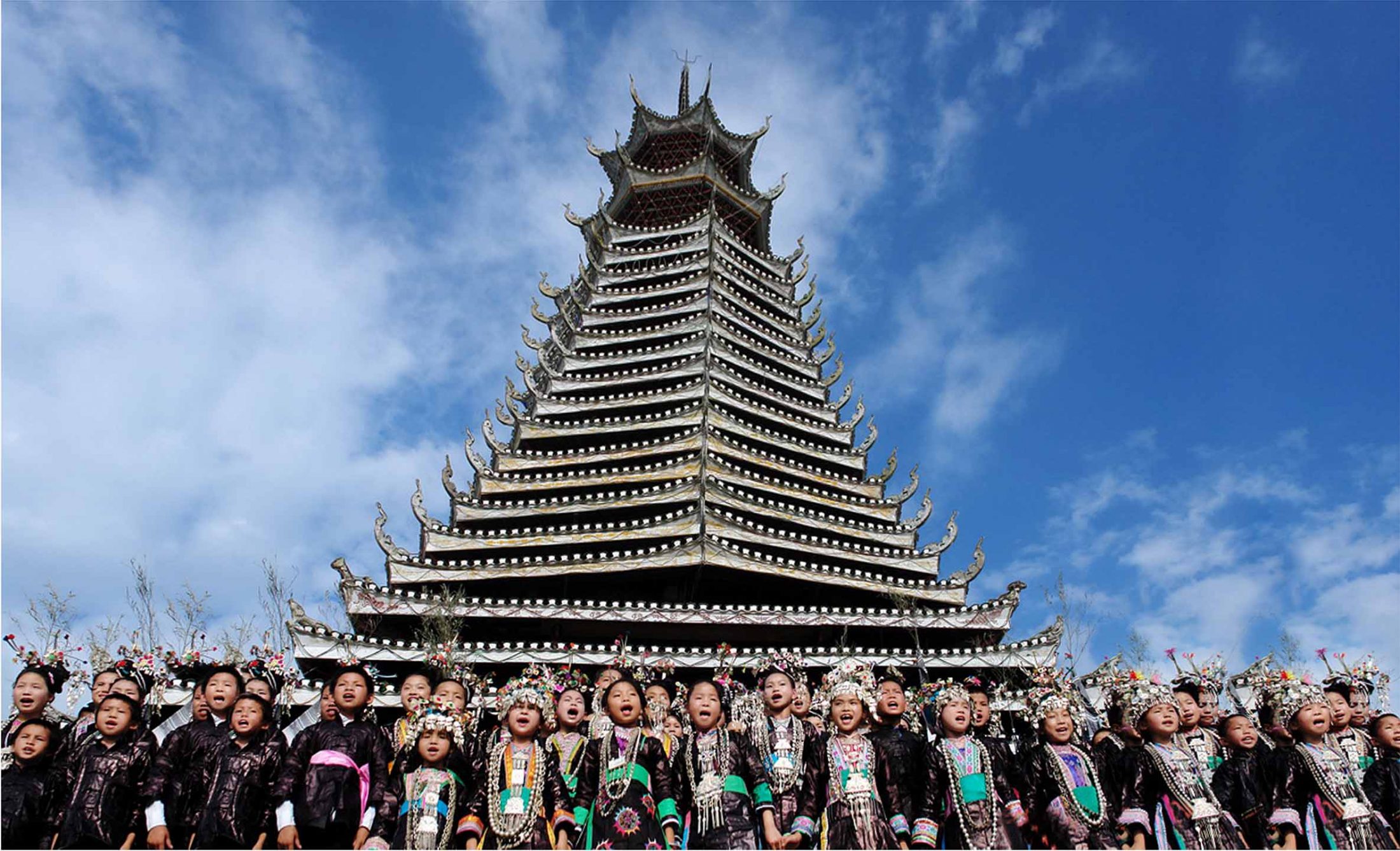
Let The River Flow
Ecological priority is leading the charge in Guizhou’s pursuit of sustainable development.
The landscapes of Guizhou, a landlocked province in China’s mountainous south, are legendary. Limestone mountains wrapped in jungle give way to trickling streams. Heritage houses sit shoulder to shoulder in ancient villages. And swirling rice terraces cling to hills that change color with the seasons. A year in Guizhou is marked by vibrant greens, golden yellows, and pristine whites.

Meandering through these picturesque rural scenes is the Wu River, a tributary of the mighty Yangtze, Asia’s longest river. More than half of Guizhou’s ethnically diverse population live close to the river, where they take advantage of the incredibly fertile land. A kaleidoscope of fruit, including blueberries, peaches, oranges, kiwis, and strawberries, all grow in abundance thanks to the mineral-rich waters of the Wu River.
Sustaining Guizhou’s remarkable natural setting while capitalizing on its agricultural fertility is key to the province’s future. In February 2021, President Xi Jinping visited Bijie, a city in northwestern Guizhou, where he highlighted the importance of giving equal value to economic advancement and environmental protection.
Clear Waters and Green Mountains
“Clear waters and green mountains are as good as mountains of gold and silver,” said President Xi when addressing the United Nations in 2017 about the importance of implementing The Paris Agreement, which was agreed by 195 member economies, including China, the previous year. In the same spirit, the eleventh Eco Forum Global (EFG) Guiyang will take place in the capital of Guizhou in 2021.
As the only national forum on ecological development that began in 2009, the EFG has become one of Guizhou’s most important events. Over the past decade, the forum has discussed the importance of international cooperation, the implementation of sustainable development strategies, and environmental protection and conservation.

Tackling Problems Head On
In the early 2010s, rapid coastal industrial development along the Wu River, large-scale aquaculture farms, and delays in the construction of sewage treatment systems have become causes of pollution.

In overcoming this challenge, the health of the Wu River was made central and a priority for action. These discussions led to Guizhou passing laws in 2014 that would establish the basic rights and obligations of the government, private enterprise, and the public in the pursuit of healthier and more sustainable agricultural practices. As a result, to improve the water quality of the Wu River, Guizhou was able to ban unsustainable aquaculture projects, treat phosphorus pollution, and effectively implement a River Chief System (RCS). This system has been hugely successful in other parts of China.

Pivoting to A Sustainable Economy
Yang Changhong, who had worked aquaculture farms on the Wu River for 30 years, supported the state’s response and retrained as a strawberry farmer under a local scheme. He used his savings and compensation to invest in over 0.6 acres of land along the river. “The process of transformation is painful,” says Yang, who now makes a good income growing strawberries in greenhouses.

It is important to allow the Wu River to recuperate and let future generations see clear water.
Yang Changhong, farmer
Guizhou’s increasingly clean and definitively picturesque scenery is also helping to contribute to the province’s burgeoning tourism economy. The Wu River now attracts tourists from across China and the world, who come to enjoy the area’s panoramic vistas, colorful fruit farms, and specialty teas that grow on both sides of the river.

The Greatest Competitive Advantage
“We must deeply learn and apply Xi Jinping’s thoughts of ecological civilization, more firmly establish the concept that clear waters and green mountains are as good as mountains of gold and silver, make more efforts to wage a battle to prevent and control pollution, further coordinate a systematic management of mountains, rivers, forests, farmland, lakes and grasslands, strive to create a beautiful Guizhou with green mountains, clear waters and fresh air, making the excellent ecological environment an everlasting “happy real estate” and “green cash machine” for the people of Guizhou,” says Shen Yiqin, secretary of the Communist Party of China Guizhou Provincial Committee and chairman of the Standing Committee of the People’s Congress of Guizhou Province.
This year’s EFG will discuss how to continue national and international cooperation for a better ecological environment and a brighter shared future for mankind.

For Humankind and Nature
Guizhou’s pursuit of sustainable development.





